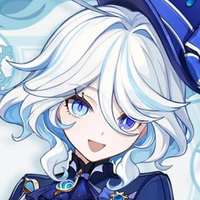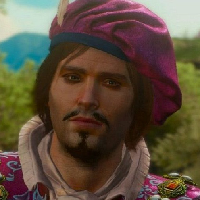Kaveh тип личности MBTI
Личность
"Какой тип личности является Kaveh? Kaveh - это тип личности ENFP в mbti, 4w3 - so/sx - 471 в Enneagram, SLOAI в Big 5, EII в Socionics."
"we're all scholars here. i know full well that shutting down his views like this is autocratic and arrogant... fine by me. i'll bear that responsibility. as for why I want to give the mora away... i don't support sachin's views, and i don't want to take his mora. with a lot of things in life, people need to experience them for themselves. it shouldn't be up to one person to make a judgment on — not him, and not me either." full analysis: ENFP (ne-fi-te-si). first off, i see a lot of comments about how kaveh is an fe user because of his kindness. however, fe is not solely about helping other people. fi users can be selfless, altruistic, kind, and empathetic all the same. if we closely evaluate kaveh's perspective, his fi becomes blatantly clear. when considering fe vs fi, we cannot look only towards the actions or behaviors of a characters. the judging function encompasses value *judgments*, which means that an individual will be more predisposed to acting in accordance with those judgments, but that may not always be the case. thus, kaveh's people-pleasing attitude on the surface is not enough to prove fe. when he reasons why he helps other people, it is always about how it makes *him* feel. in fact, much of his beliefs are based on soothing or maintaining internal harmony within himself: "well, when you put it like that... yes, why [feel guilty turning down faruzan from giving away her points and helping the desert foxes], indeed? it's a good question. i guess it's just in my nature. plus, if i just did nothing, then there'd be no escaping the blame if something bad came of it later down the line." notice how he focuses on the "blame" that would come onto him if something were to happen. now, this isn't to say that he is selfish or only cares about how he feels, but an fe user would be more inclined to focus on the external feelings involved. and naturally, this is brought up by alhaitham during their argument: "alhaitham for his part pointed out that kaveh's impractical idealism was just a flight from reality, and that it would come to be a burden on his existence someday, and the source of kaveh's altruism was naught but his inescapable sense of guilt." kaveh has a tendency to maintain his beliefs in the face of opposition from others, feeling a desire to push his ideals onto others (whether directly or indirectly). when he was going out of his way to help students part of the research project with alhaitham, he was doing so because of a strong personal belief he held in the potential of other people: "ordinary people and geniuses would be separated by various practical realities, and they did not have to force themselves to fit into a group they did not belong to. kaveh, however, was resolute in his belief that this was all the result of obstacles that appeared during the process, and that wisdom should be uncovered by many people." i want to emphasize once more that kaveh is still nonetheless an empathetic and caring person, but it is made endlessly clear that his assistance to others is because of personal values derived within himself. conversely, fe values are derived externally, from the collective. fe tends to generalize because it views its judgments or beliefs as universally applicable, which is in direct opposition to kaveh's philosophy. he rejects sachin's beliefs because he sees the potential in other people as individuals and doesn't concern himself with "objective" measurements of other people. kaveh consistently aligns himself with his personal values, not with collective values, and it distresses him otherwise: "...the way i did things wasn't optimal, but i wouldn't have been comfortable not doing it, either. my conscience would've weighed on me." prior to dori's commission, kaveh was immensely discontent with his work: "he began to realize that his ideals and career goals were, as a certain someone had said, not easily attainable... with his dreams and career now at odds, kaveh gave himself a long vacation." the work he was doing was unfulfilling and creatively restrictive. he was disillusioned as a consequence of being unable to actualize his ideas. being unable to exert freedom and pursue possibilities is the source of this conflict. it is purely personal and related to his inclination towards innovation and art. he is discontent with society because of how limiting it is for *him*. is this to say that he doesn't care about how anyone else is affected by the way the arts are treated? of course not, but the line of reasoning went: i want to create art -> i am unable to create art because of the state of society -> i am discontent with the state of society. this belief is based purely not only on his own experiences, but purely based on his desire to seek out new ideas (ne-fi). it is a value judgment (fi) that supports his perceiving function (ne).
биография
Kaveh is the architect behind the Palace of Alcazarzaray. He graduated from Kshahrewar of the Sumeru Akademiya with honors. After going deep into debt during the construction of the palace, Kaveh has taken up residence with Alhaitham, although he often argues with his housemate due to their vastly different opinions In stark contrast to Alhaitham's rationality, Kaveh operates by what he feels is right. He is a stark defender of the arts and believes that helping others is a natural course of action. Their intense disagreements are such that they even bleed into messages on bulletin boards across Sumeru City and Port Ormos.
Личность correlate

Venti

Wanderer / Scaramouche

Furina

Kaedehara Kazuha

Yae Miko

Neuvillette (Chief Justice of Fontaine)

Fischl

Arlecchino















